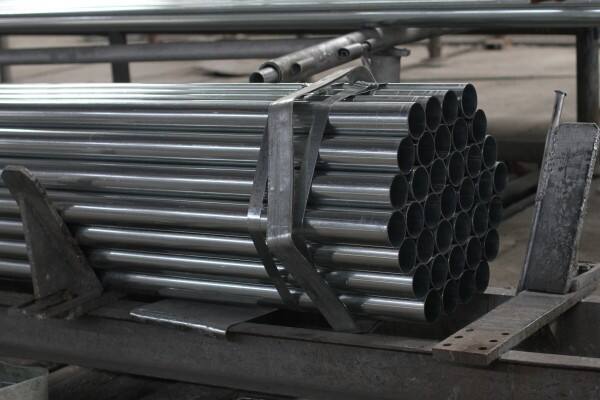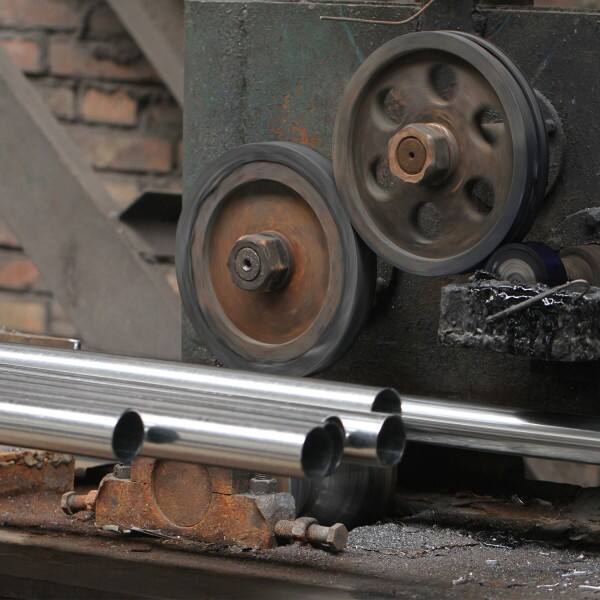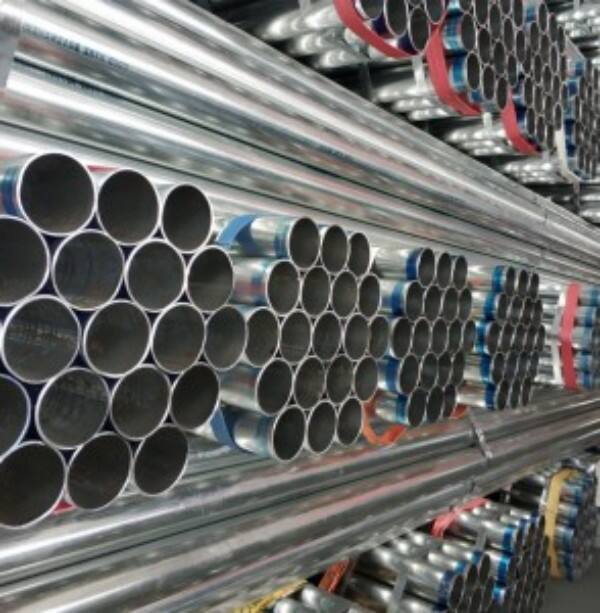Galvanized Strip Round Pipe typically refers to round pipe processed using
hot-dip galvanized strips that are hot-dip galvanized during the manufacturing
process to form a layer of zinc to protect the surface of the steel pipe from
corrosion and oxidation.

Manufacturing Process
1. Material Preparation:
Steel Strips: The manufacturing of galvanized strip round pipes begins with the selection of high quality steel strips. These steel strips can be cold or hot rolled steel sheets or strips, depending on the requirements of the product and the area of application.
2. crimping or molding:
Crimping: The steel strip is bent to the required diameter and shape through the crimping process to form the initial form of the pipe.
Forming: The steel strip is rolled into a round or other specific shape of pipe by using a coiler, bender or other forming equipment.
3. Welding:
Welding process: The coiled or formed steel strip is joined into a complete round pipe by welding process. Common welding methods include high-frequency welding and resistance welding.
4. galvanizing process:
Hot dip galvanizing: The welded and formed steel pipe is fed into the hot dip galvanizing equipment, and is firstly treated with pickling to remove the oil and oxides on the surface, and then the pipe is immersed in molten zinc to form a layer of zinc coating. This layer of zinc can effectively protect the surface of the steel pipe from corrosion.
5. Cooling and shaping:
Cooling: The galvanized pipe undergoes a cooling process to ensure that the zinc layer is firmly attached to the surface of the pipe.
Shaping: The galvanized strip round pipe is cut to the required length and specification through cutting and shaping process.
6. Inspection and Packaging:
Quality Inspection: Conduct quality inspection on the manufactured galvanized round pipes to ensure that the products meet the relevant standards and requirements.
Packing: Pack the qualified products for transportation and storage, and protect the pipes from damage.

Advantages of galvanized round pipe
1. corrosion resistance: zinc layer can effectively prevent oxidation and corrosion, extend the service life of the pipe, especially suitable for use in wet or corrosive environments.
2. excellent appearance: the galvanized layer gives the pipe a bright appearance, not only to enhance the aesthetics of the product, but also to make it more suitable for the need for the appearance of demanding occasions.
3. high strength and durability: galvanized round pipe not only has the high strength characteristics of steel pipe, but also more durable due to the protection of the zinc layer. 4. easy to process: galvanized round pipe has the same characteristics as steel pipe.
4. Ease of processing: Galvanized round pipe is relatively easy to cut, weld and process, allowing for customization of various shapes.
5. Environmentally friendly: Galvanized coating is an environmentally friendly material. At the same time, due to its anti-corrosive properties, it reduces the need for maintenance and replacement due to rusting of pipes, thereby reducing resource consumption and waste.
6. Versatility: Galvanized round pipes are widely used in various fields such as construction, machinery manufacturing, transportation, etc. for a variety of purposes including conveyance piping, support structures, etc.
7. Cost-effectiveness: Although the manufacturing cost of galvanized round pipe may be slightly higher than that of ordinary steel pipe, it can be more cost-effective in the long run due to its durability and reduced maintenance requirements.

Areas of application
1. Building Structures: Used for piping systems in buildings, including water supply piping, drainage piping, HVAC systems, etc. Galvanized round pipe is often used outdoors or in high humidity environments due to its corrosion resistance, such as stair railings, fences, roof drainage systems, etc.
2. Industrial applications: Transportation pipes and support structures in the machinery manufacturing industry, such as pipes for transporting liquids or gases, and support structures for industrial equipment.
3. transportation: in automobile manufacturing, shipbuilding, used in the manufacture of structural parts of vehicles, safety guardrails, bridge support, etc.
4. Agriculture: agricultural facilities and equipment, such as agricultural pipelines, greenhouse structures, etc., because of its corrosion resistance in the agricultural environment has certain advantages.
5. Furniture Manufacturing: In furniture manufacturing, especially outdoor furniture or furniture that needs rust-proof treatment, it is commonly used in the production of frames and support structures.
6. Other fields: It is also widely used in sports facilities, playground structures, pipeline engineering, food processing equipment and other fields for various purposes.
 Hot News
Hot News2024-09-05
2024-07-23
2024-06-14
2024-08-07
2024-05-23
2024-05-21